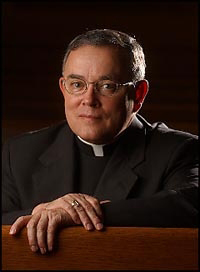In this Year of Faith, and especially as we celebrate the Solemnity of Christ the King (Nov. 25) and the beginning of Advent (Dec. 2), it’s a good time to reflect on the nature of what we believe as Catholics.
To be a Christian is to believe in history. I mean that in the way the great Catholic historian, Christopher Dawson, meant it. Dawson wrote: “Christianity, together with the religion of Israel out of which it was born, is a historical religion in a sense to which none of the other world religions can lay claim.”
Consider the Bible. All of the world’s great religious and ethical traditions have sacred books: the Qu’ran, the Bhagavad–Gita; the Analects of Confucius. What all these texts of other traditions share is that they’re essentially wisdom literature. They’re collections of teachings aimed at helping believers live ethically and find the right path to happiness or enlightenment.
The Bible also aims to make people wise. But it also seeks to lead them to salvation, which is much more than enlightenment. The Bible’s first words are: “In the beginning . . .” Genesis begins with the first day in the history of the world. The entire Old Testament is similar. After speaking about the first man and woman and their descendants, it proceeds to offer a historical account of God’s chosen people, the children of Israel. Modern scholarship can challenge details of the Old Testament narrative, but the importance that biblical writers place on providing a history is unmistakable.
The New Testament continues that history, focusing on one particular child of Israel, Jesus of Nazareth, and the community he founded, the Church. The story is told with numerous references — some direct, others subtle — to that earlier history. Jesus is portrayed as fulfilling all that God promised in the Old Testament. The Church is described as the new people of God, the final realization of Israel’s calling to be God’s light to the nations.
Throughout the New Testament, we’re given precise historical markers. To be a Christian therefore means believing very definite things about history and about our own respective places in history.
We don’t just profess belief in the Incarnation. We say we believe that God took flesh at a precise moment in time, and in a definite place. It’s the reason for that curious detail in our Nicene and Apostles’ Creeds: We’re the only religion to remember our founder’s executioner by name every time we profess our faith.
Pontius Pilate and Mary are mentioned by name in the creeds. Why? The reference to Mary, Jesus’ mother, guarantees Christ’s humanity. The reference to Pilate, who condemned him to death, guarantees his historicity. It ensures that we can never reduce the Incarnation to an abstract concept, a metaphor, or a pretty idea. It ensures that we can never regard Jesus Christ as a kind of ideal archetype or mythical figure. He was truly a man and truly God. And he had a place on this earth he called home.
We also believe that this historical event, more than 2,000 years ago, represents a personal intervention by God “for us and for our salvation.” God entered history for you and me, and for all humanity.
The four noble truths of Buddhism don’t have anything to do with history. The Muslim profession of faith, the shahada, claims simply that there is no God but God, and that Muhammad was his messenger. To the degree that Islam has a historical narrative, it was arguably borrowed from and built on the Jewish-Christian narrative that preceded it.
Thus, to be Catholic is to be very unique among the world’s believers. To be a Catholic means believing that we are a part of a vast historical project. And it’s not “our” project. It’s God’s. Being Catholic means believing that since the beginning of time, God has been working out his own hidden purposes in the history of nations and in the biography of every person. He’s still unfolding his purposes today. And each of us has a part to play in his divine plan.
Before the foundation of the world, God had each of us in mind. He made us out of love. And he made us for a reason: to be holy; to be his sons and daughters through Jesus Christ; to help him share his love with the whole world.
We believe in God. But as God’s hand in history also clearly shows: He believes in us.
PREVIOUS: What a ‘community of believers’ really means
NEXT: Advent, a season of hope: Hearing and sharing the message




Dear Archbishop Chaput,
I began today to read your weekly column. It was refreshing a enlightening to read as I just came across articles and webpage of Women Priests. We certainly live in a time of many voices leading us away from Christ. I pray everyday to be delivered from evil. You are the bright light of Christ for me. Thank you, Archbishop. Have a prayerful Advent. And keep me in your holy prayers.
Well done! Have a blessed Thanksgiving and a prayerful Advent!
Kathy
This is an excellent commentray that is so educational and helpful to all of us who enjoy and look forward to reading Archbishop Chaput’s thoughts and comments.